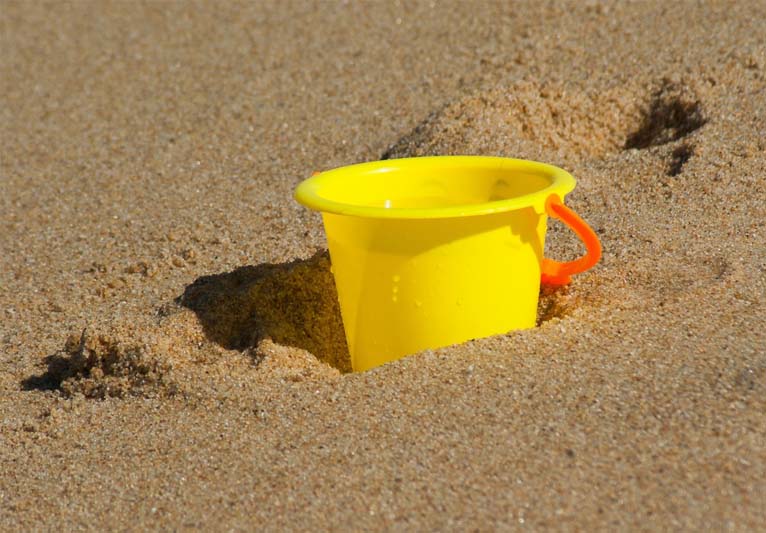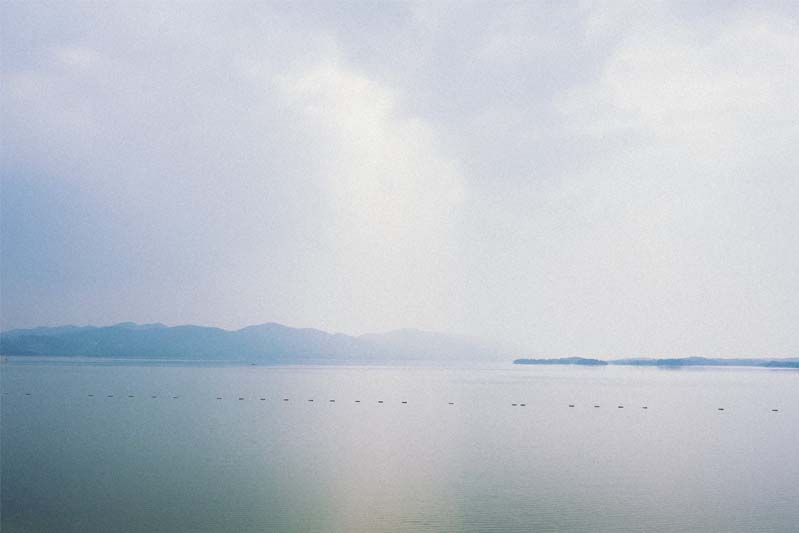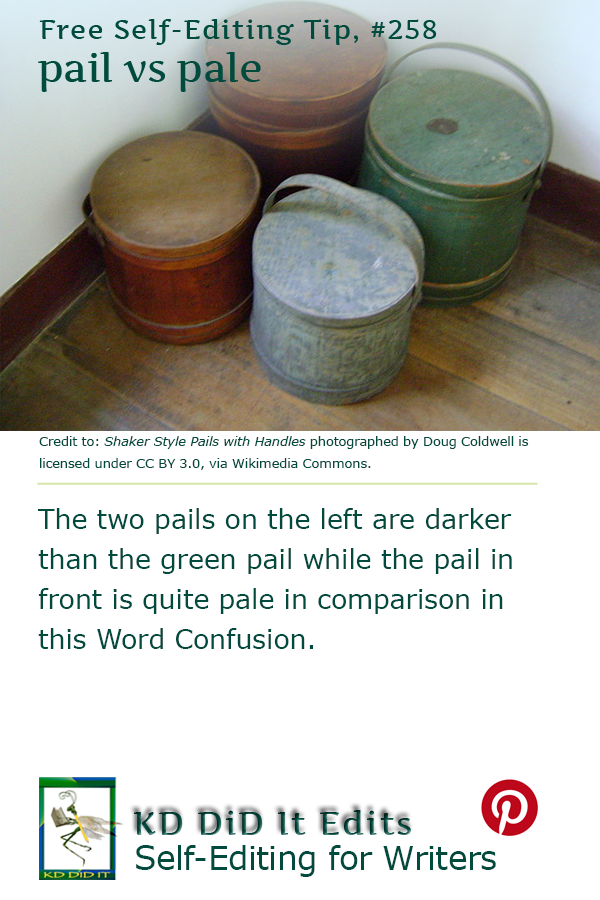Revised as of
10 July 2023
This pair of heterographs pail vs pale hasn’t been a frequent word confusion, but I came across it in a Facebook post, and I wasn’t sure what the action was supposed to be. If it was a new paranormal creature called a pale or simply a spiritual sort of pale. It could also have been meant to be a simple pail. But there wasn’t enough context to tell.
It doesn’t matter where you write, there will always be someone (like me, *grin*) whimpering away about what does it mean . . ., and you really don’t want to distract your reader from the message you do want to send.
Word Confusions . . .
. . . started as my way of dealing with a professional frustration with properly spelled words that were out of context in manuscripts I was editing as well as books I was reviewing. It evolved into a sharing of information with y’all. I’m hoping you’ll share with us words that have been a bête noire for you from either end.
If you found this post on “Pail versus Pale” interesting, consider subscribing to KD Did It, if you’d like to track this post for future updates.
| Pail | Pale |
|---|---|

Pails, Tubs, and Buckets is courtesy of Factory Direct Craft. |

Body of Water Under White Sky by Leon Huang is in the public domain, via Pexels. — It’s a pale light, all right. |
| Part of Grammar: | |
| Noun
Plural: pails |
Adjective 1; Noun 2; Verb, intransitive 1 & transitive 3 Plural for the noun: pales Third person present verb: pales |
| A bucket | Adjective: Light in color or having little color 1
Noun:
[The Pale; historical] Another term for English Pale 4
[Heraldry] A broad vertical stripe down the middle of a shield An area or the limits within which one is privileged or protected (as from censure) Verb, intransitive: Seem less impressive or important Verb, transitive: To enclose with pales
To encircle or encompass |
| Examples: | |
| Quick, grab the pail.
Use a mop and pail to clean that up. Jack and Jill went up the hill to fetch a pail of water. Would you fetch a pail of water? Homer’s coming home with a pail of beer. |
Adjective: Choose pale floral patterns for walls. She looked pale and drawn. Unconvincing rock that came across as a pale imitation of Bruce Springsteen. Noun: Oh, you have gone beyond the pale. You are lucky to be outside the pale of my jurisdiction. Verb, intransitive: All else pales by comparison. His own problems paled into insignificance compared to the plight of this child. Verb, transitive: He was pale with fear. He paled the yard last weekend. |
| Derivatives: | |
| Adjective: paler, palest, palish Adverb: palely Noun: paleness, paling |
|
| History of the Word: | |
| Middle English with an uncertain origin.
Compare with the Old English pægel meaning gill, small measure and the Old French paelle meaning pan, liquid measure, or brazier. |
|
C’mon, get it out of your system, bitch, whine, moan . . . which words are your pet peeves? Also, please note that I try to be as accurate as I can, but mistakes happen or I miss something. Email me if you find errors, so I can fix them . . . and we’ll all benefit!
Satisfy your curiosity about other Word Confusions on its homepage or more generally explore the index of self-editing posts. You may also want to explore Book Layout & Formatting Ideas, Formatting Tips, Grammar Explanations, Linguistics, Publishing Tips, the Properly Punctuated, Writing Ideas and Resources, and Working Your Website.
Resources for Pail versus Pale
Apple Dictionary.com
The Free Dictionary: pail, pale
Merriam-Webster: pale
Pinterest Photo Credits
Shaker Style Pails with Handles photographed by Doug Coldwell is under the CC BY-SA 3.0 or GFDL licenses, via Wikimedia Commons.



I wonder if I am enlightened by reading these posts, and I confused more than I realised or if I am adding more confusion? I am sure it is the former and not the latter ! It could also be that Facebook posts and such can influence us without realizing it.
I certainly feel more confused when I’m writing up some of these Word Confusions, and every once in a while I am downright discombobulated. What terrifies me, really, is the humongous number of posts, websites, and books (whether they’re eBooks or hardcopy) which misuse and abuse the English language. This perpetuates the wrongful usage of a word, so, yeah, I’m not surprised you’re feeling confused.
At worst, if these Word Confusions make you stop and think…it’s a good thing!
I agree and in great part it is with posts (I noticed yesterday when I took a plunge and wrote from the heart that in my haste I made some Whoppers… but as indie books have less organized more limited budgets there is a huge problem that languages will indeed deteriorate in a form that actually becomes (sic), this is not new with the tremendous influence after WW II of the American soldiers in France Le fin de semaine was replaced by Le Weekend and they actually added the verb Stopper (from stop).We may well be in a threshold wherein decades we will sound as archaic as The Bard
Oh, say it ain’t so! Just think how difficult it will become to read the “greats” of our time: Clive Cussler, Nora Roberts, John Grisham, David Weber, Mercedes Lackey, J.R. Ward…LOL.
Hi Kathy a friend just shared this video on FB and I thought with your word confusion posts it would be one you might enjoy https://www.youtube.com/watch?feature=player_embedded&v=hRMRCeQBAKI
I loved it! Thanks, Maria!
Catalina please …I goby my middle name, I am glad you enjoyed it!
Even as I typed that I remembered your mentioning our names being the same… Thanks for the reminder!